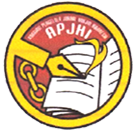Prospects for the Development of Halal, Thoyib, and Hygienic Food Production During the New Normal Covid-19 Period as Supporting Pillars of National Food Security
DOI:
https://doi.org/10.29303/ulrev.v5i2.184Keywords:
Food Security, Halal and Thoyib, Halal Product Category, Legal Awareness.Abstract
The background of this research is that the government claims that the Covid-19 pandemic has actually increased consumer awareness on the consumption of halal products, ranging from food products, beverages, traveling, to cosmetics. The government also seeks to increase awareness of the development of halal and thoyib products. This is supported by the data the authors obtained from various literatures. The legal issues raised in this study are formulated into several problem formulations, namely whether regulations and supervision regarding the development of halal products in Indonesia can meet all sharia principles regarding halal, toyib, and hygienic considering that Indonesia is a muslim majority? How is the process of developing the ability of producers and SMEs in Indonesia in developing halal products? How is the category of halal certification for products in Indonesia as one of the important categories for food products to meet the principles of halal and thoyib? Based on this formulation, this study analyzes the regulation and supervision of halal product development, halal product development process, and categories of halal, thoyib, and hygienic food products that are in accordance with LPPOM MUI halal food standards so that these products can be certified as halal products. The purpose of this research is to be able to develop halal, thoyib, and hygienic food production during the Covid-19 period as a supporting pillar of national food security. The method used is the normative juridical research method. This research is descriptive research with the source of the data used in this study was obtained from library research. The results of this study, namely the data that the authors obtained indicate that there has been an increase in public awareness on the consumption of halal products, ranging from food products, beverages, traveling, to cosmetics during the Covid-19 period. In line with this, the government also continues to strive to increase awareness of the development of halal and thoyib products.
References
Amin, Ma’ruf Fatwa Produk Halal Melindungi dan Menentramkan, Jakarta: Pustaka Jurnal Halal, 2010, p. 79.
Bagian Proyek Sarana Dan Prasarana Produk Halal Direktorat Jenderal Bimbingan Masyarakat Islam Dan Penyelenggaraan Haji, Petunjuk Teknis Pedoman Sistem Produksi Halal, Jakarta: Departemen Agama RI, 2003.
Dahlan, Abdul Aziz (1996) Ensiklopedi Hukum Islam, Jakarta: Ikhtiar Baru van Hoeve.
Djazuli, Ahmad (2007) Kaidah-Kaidah Fikih, Jakarta: Kencana Media Group, 2nd Edition.
Fajar, Mukti dan Yulianto Achmad (2010) Dualisme Penelitian Hukum Normatif dan Empiris, Pustaka Pelajar, Yogyakarta.
Hariyadi, Purwiyatno (2013) Peranan Industri untuk Penguatan Ketahanan Pangan Mandiri dan Berdaulat, Jakarta: Simposium Pangan Nasional Indofood, 2013.
Indonesia Halal Lifestyle Center. (2019). “Indonesia Halal Economy and Strategy Roadmap 2018/19: A Preview.†Indonesia Halal Lifestyle Center.
Melchert, Christoper, The Formation of The Sunni School of Law 9-10 Centuries. Leiden: Brill, 1997.
Muslih, Muhamad, Ketahanan Pangan dan Halal Food dalam Hukum Islam, Media Edukasi Indonesia, Tangerang, 2020.
Pemerintah Republik Indonesia (2012) Undang-Undang No. 18 tahun 2012 Tentang Pangan.
Soekanto, Soerjono (1998) Metodologi Research, Andi Offset, Yogyakarta.
Tim Publikasi Katadata. (2020). “Industri Halal Untuk Semua.†Kata Data.
Wahjoedi, Rachmawati (2017) Berjuang di Jalan Sunyi Studi Etnografi Gerakan Pangan Lokal Anak Muda Di Yogyakarta, Jogyakarta: Universitas Gadjah Mada, accessed from http://etd.repository.ugm.ac.id
Journals
Aminudin, Muh. Zumar, “Sertifikasi Produk Halal: Studi Perbandingan Indonesia dan Thailandâ€, dalam Jurnal Shahih, Volume I, Number I, January-June 2016 (2527-8118). http://ejournal.iainsurakarta.ac.id/index.php/shahih/article/download/52/44
Bayu, Anggalih dan Muh. Kamim, (2020), “Wabah Virus Korona dan Momentum Evaluasi Rezim Ketahanan Pangan Di Indonesia (Covid-19 Pandemic and Momentum Of Food Security Evaluation In Indonesia)â€, dalam Jurnal Kependudukan Indonesia, Special Edition Demografi dan COVID-19, July 2020, 87-92.
Charity, May Lim, “Jaminan Produk Halal di Indonesia (Halal Products Guarantee in Indonesia)â€, on Jurnal Legislasi Indonesia, Volume 14, Number 01, March 2017 (99-108), p. 101. http://e-jurnal.peraturan.go.id/index.php/jli/ article/download/77/pdf
Faried, A.I. (2019). “Implementasi Model Pengembangan Industri Halal Fashion Di Indonesia.†Jepa 4(2).
Fathoni, M. A., Syahputri, T. H. (2020). Potret Industri Halal Indonesia: Peluang dan Tantangan. Jurnal Ilmiah Ekonomi Islam, 6 (03), 428-435. doi: http://dx.doi.org/10.29040/jiei.v6i3.1146
Hanafie, Rita, Penyediaan Pangan Yang Aman dan Berkelanjutan Guna Mendukung Tercapainya Ketahanan Pangan, J-SEP Volume 4, Number 3, November 2010.
Husna, Faiqoh (2020), “Virus Corona Dampak dari Makanan yang Tidak Halalâ€, dalam Jurnal SALAM, Jurnal Sosial dan Budaya Syar’i Volume 7, Number 6, April 2020. DOI: 10.15408/sjsbs.v7i6.15318
Kamim, Anggalih Bayu Muh. (2020), “Wabah Virus Korona dan Momentum Evaluasi Rezim Ketahanan Pangan Di Indonesia (Covid-19 Pandemic And Momentum of Food Security Evaluation In Indonesia)â€, on Jurnal Kependudukan Indonesia, Khusus Demografi Dan COVID-19 Edition, July 2020, 87-92.
Kementerian Keuangan Republik Indonesia. (2019). “Media Keuangan.†Kementerian Keuangan 14(140).
Melissa, Wan, Wan Hassan, and Khairil Wahidin Awang, “Halal Food in New Zealand Restaurants: An Exploratory Studyâ€, dalam International Journal of Economics and Management, Volume 3, Number 2, 2009, (385-402).
Saeed, Yasmin and James Ondracek, “Dakota Halal Processing: A Case Study and Halal Food Management Frameworkâ€, dalam Delhi Business Review, Volume 5, Number 2, July- December 2004, (33-45).
State of Global Islamic Economy Report. (2019). State of Global Islamic Economy Report 2019/20. New York: Thomson Reuters.
Suharyanto, Heri (2011) “Ketahanan Panganâ€, dalam Jurnal Sosial Humaniora, Volume 4, Number 2, November 2011, p. 186-187, accessed at 13 March 2019.
Sukarman, Hendra dan Wildan Sany Prasetiya, “Degradasi Keadilan Agraria Dalam Omnibus-Lawâ€, dalam Jurnal Ilmiah Galuh Justisi, Fakultas Hukum Universitas Galuh, Volume 9, Number 1, March 2021, (17-37).
Susilowati, Suparto, Djanurdi, Deviana Yuanitasari, dan Agus Suwandono, “Harmonisasi dan Sinkronisasi Pengaturan Kelembagaan Sertifikasi Halal Terkait Perlindungan Konsumen Muslim Indonesiaâ€, dalam Mimbar Hukum, Volume 28, Number 3, October, 2016 (427-438).
Tahir, Palmawati, Muhamad Muslih, dan Rani Sri Agustina, “MUI Halal Certification On Milkfish Satay As An Effort To Support National Food Securityâ€, dalam Legal Standing Jurnal Ilmu Hukum, Volume 4, Number 1, March 2020 (233-246), p. 237. DOI : 10.24269/ls.v4i1.2670 http://journal.umpo.ac.id/index.php/LS/article/view/2670
Newspaper
Akbar, C. (2019). “Konsumsi Produk Halal Di RI Tinggi, Bappenas: Kebanyakan Impor.†TEMPO.CO.
CNN Indonesia. (2019). “KNKS Sebut Pertumbuhan Pangsa Pasar Keuangan Syariah Stagnan.†CNN Indonesia.
Jakarta, CNN Indonesia, https://www.cnnindonesia.com/ekonomi/20201002162752-92-553763/pemerintah-klaim-covid-19-dongkrak-keyakinan-ke-produk-halal
Purnomo, Wayan Agus, Menyangkal Krisis Menuai Bencana, 2020, accessed from https://majalah.tempo.co/read/laporan-utama/159957/salah-langkah-jokowi-hadapi-wabah-corona at 20 March 2020
Republika.co.id (2020) Peluang Bisnis Makanan Halal di Tengah Pandemi, Friday, 12 Rabiul Akhir 1442 / 27th November 2020, Red: Karta Raharja Ucu, https://republika.co.id/berita/qaf51v282/peluang-bisnis-makanan-halal-di-tengah-pandemi
Sholeh, Asrorun Ni’am, “Halal Jadi Tren Globalâ€, dalam GATRA, Edisi 29 Juli 2015.
Laws and Regulations
Articles in the Omnibus Law relating to Agrarian Issues
Guidelines for the Production and Distribution of Processed Food During the Health Emergency Status of Corona Virus Disease 2019 (Covid-19) in Indonesia issued by BPOM of the Republic of Indonesia in April 2020.
Regulation of the Minister of Health of the Republic of Indonesia Number 9 of 2020 Concerning Guidelines for Large-Scale Social Restrictions in the Context of Accelerating Handling of Corona Virus Disease 2019 (Covid-19)
Minister of Trade Regulation Number 7 Year 2020
Regulation of the Minister of Agriculture of the Republic of Indonesia Number 16 of 2020 Concerning the Provision and Distribution of Rice in the Context of Handling the Impact of Corona Virus Disease 2019 (Covid-19) through Rice Automated Teller Machines
Government Regulation of the Republic of Indonesia Number 23 of 2020 Concerning the Implementation of the National Economic Recovery Program in Order to Support State Financial Policies for Handling the 2019 Corona Virus Disease (Covid-19) Pandemic or Facing Threats That Endanger the National Economy or Financial System Stability and Rescue the National Economy
Amendments to Government Regulation Number 23 of 2020 Concerning the Implementation of the National Economic Recovery Program to Support State Financial Policies for Handling the Corona Virus Disease 2019 (Covid-19) Pandemic or Facing Threats That Endanger the National Economy or Financial System Stability and Rescue the National Economy
Circular Letter Number 317/M-DAG/SD/04/2020 Concerning Fluency Supply of Goods for the Community Amid the Corona Virus Pandemic
Law of the Republic of Indonesia 33 of 2014 Concerning Halal Product Guarantee
Law of the Republic of Indonesia 18 of 2012 Concerning Food
Law of the Republic of Indonesia Number 7 of 1996 Concerning Food
Downloads
Published
How to Cite
Issue
Section
License
Copyright (c) 2021 Muhamad Muslih, Ferina Ardhi C

This work is licensed under a Creative Commons Attribution-NonCommercial 4.0 International License.
Copyright holder by Author














